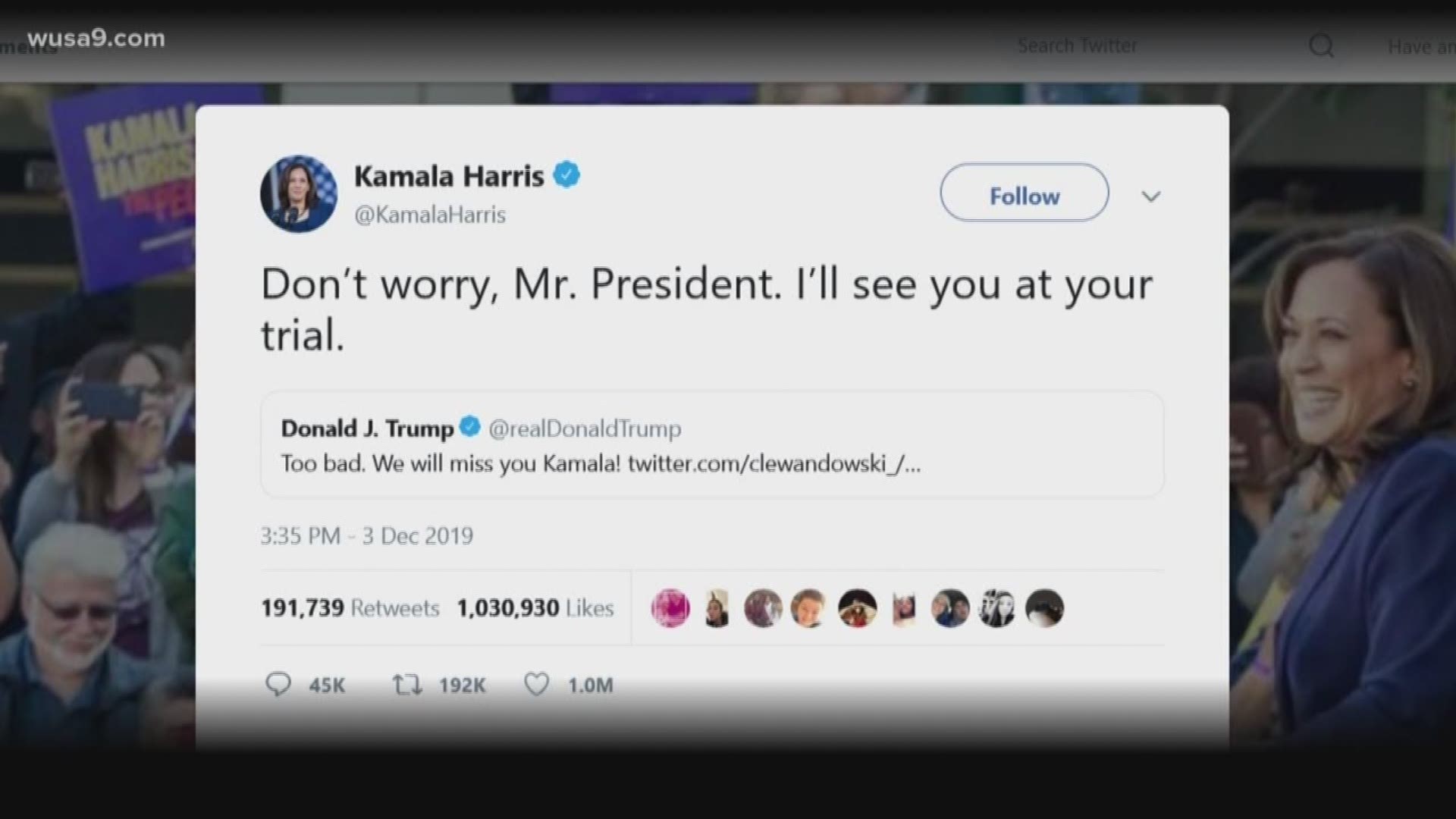WASHINGTON — Sen. Kamala Harris never got the chance to face President Trump head-to-head on the debate stage. But what if it happens on an even bigger stage, at the president’s impeachment trial?
The witness, Donald J. Trump.
The cross-examiner, Kamala D. Harris.
The showdown would be must-see television. A potentially revanchist story line rolled into a series of questions posed by California’s former top prosecutor.
The former candidate for president was of course memorably bid adieu from the 2020 race by the current president on Twitter.
“Too bad. We will miss you Kamala!” read the Trump tweet.
“Don’t worry, Mr. President. I’ll see you at your trial,” the senator clapped back.
Would the president resist such a rematch? Would it even happen?
As articles of impeachment are drafted, the answers to those questions are largely unknown, as many of the rules governing Trump’s Senate impeachment trial have yet to be written.
Democratic members of the House Judiciary Committee will likely serve as impeachment managers (with perhaps the addition of House Intel Chair Adam Schiff), lawmakers who will prosecute the case for removing the president.
But it’s unclear if senators would be given the chance to speak, or question the cases presented by House impeachment managers, or White House defense lawyers.
"We'll be talking about the way to go forward and see if we can reach an agreement," Sen. Mitch McConnell said Tuesday, concerning discussions with Democrats. "No, we have not sat down and tried to work out a procedure yet."
Both Sen. McConnell and Minority Leader Chuck Schumer will meet in the coming days to craft the rules, but in reality, the choices are essentially up to McConnell.
The most important rule set in stone relates to the umpire – the chief justice of the United States – who presides over the trial.
Supreme Court business continues, with the justice who has highest seniority (in this case, Clarence Thomas) filling in for the chief justice.
A large portion of the trial procedures outlined in the document titled, "Rules of Procedure and Practice in the Senate when Sitting on Impeachment Trials," are considered guidelines, most in use since the 1860s.
The rules of engagement are thus largely up to those who run the Senate during an impeachment trial.
Yet, other crucial questions remain, including who would serve as the president’s lawyers?
Mayor Rudy Giuliani? Rep. Jim Jordan?
Unclear.
Could Sen. McConnell vote to quickly dismiss the case, and instead hold a vote to censure the president?
Potentially.
Could a trial be delayed, if the president decides to shut down the government on Dec. 20?
Even Trump said he wants the trial over and done, quickly.
The road map decided over the next few days may lead to a seminal event ushering in 2020. Even if President Trump’s eventual acquittal is a foregone conclusion, plot twists are possible – through showdowns, breakdowns, potential meltdowns and shutdowns.

